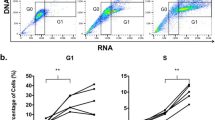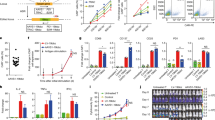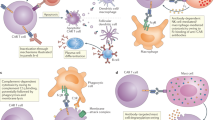Abstract
Among the novel biological therapeutics that will increase our ability to cure human cancer in years to come, adoptive cellular therapy is one of the most promising approaches. Although this is a complex and challenging field, there have been major advances in basic and translational research resulting in clinical trial activity that is now beginning to confirm this promise. The results obtained with tumor-infiltrating lymphocytes therapy for melanoma, and virus-specific CTLs for EBV-associated malignancies are encouraging in terms of both ability to obtain clinical benefit and limited toxicity profile. In both settings, objective responses were obtained in at least 50% of treated patients. However, improvements to the clinical protocols, in terms of better patient selection and timing of administration, as well as cell product quality and availability, are clearly necessary to further ameliorate outcome, and logistical solutions are warranted to extend T-cell therapy beyond academic centers. In particular, there is a need to simplify cell production, in order to decrease costs and ease preparation. Promising implementations are underway, including harnessing the therapeutic potential of T cells transduced with TCRs directed against shared tumor antigens, and delineating strategies aimed at targeting immune evasion mechanisms exerted by tumor cells.
This is a preview of subscription content, access via your institution
Access options
Subscribe to this journal
Receive 12 print issues and online access
$259.00 per year
only $21.58 per issue
Buy this article
- Purchase on Springer Link
- Instant access to full article PDF
Prices may be subject to local taxes which are calculated during checkout
Similar content being viewed by others
References
Balagula Y, Lacouture ME, Cotliar JA . Dermatologic toxicities of targeted anticancer therapies. J Support Oncol 2010; 8: 149–161.
Chintalgattu V, Khakoo AY . Review: cardiovascular toxicities due to molecularly targeted cancer therapeutics. Clin Adv Hematol Oncol 2010; 8: 133–135.
Dranitsaris G, Truter I, Lubbe MS, Amir E, Evans W . Advances in cancer therapeutics and patient access to new drugs. Pharmacoeconomics 2011; 29: 213–224.
Rosenberg SA, Yang JC, White DE, Steinberg SM . Durability of complete responses in patients with metastatic cancer treated with high-dose interleukin-2: Identification of the antigens mediating response. Ann Surg 1998; 228: 307–319.
Hanahan D, Weinberg RA . Hallmarks of cancer: the next generation. Cell 2011; 144: 646–674.
Demirer T, Barkholt L, Blaise D, Pedrazzoli P, Aglietta M, Carella AM et al. on behalf of the EBMT Solid Tumors Working Party. Transplantation of allogeneic hematopoietic stem cells: an emerging treatment modality for solid tumors. Nature Clin Pract Oncol 2008; 5: 256–267.
Takahashi Y, Harashima N, Kajigaya S, Yokoyama H, Cherkasova E, McCoy JP et al. Regression of human kidney cancer following allogeneic stem cell transplantation is associated with recognition of an HERV-E antigen by T cells. J Clin Invest 2008; 118: 1099–1109.
Hutson TE . Targeted therapies for the treatment of metastatic renal cell carcinoma: clinical evidence. Oncologist 2011; 16: 14–22.
Grimm EA, Mazumder A, Zhang HZ, Rosenberg SA . Lymphokine-activated killer cell phenomenon. Lysis of natural killer-resistant fresh solid tumor cells by interleukin 2-activated autologous human peripheral blood lymphocytes. J Exp Med 1982; 155: 1823–1841.
Mazumder A, Rosenberg SA . Successful immunotherapy of natural killer-resistant established pulmonary melanoma metastases by the intravenous adoptive transfer of syngeneic lymphocytes activated in vitro by interleukin 2. J Exp Med 1984; 159: 495–507.
Lafreniere R, Rosenberg SA . Successful immunotherapy of murine experimental hepatic metastases with lymphokine-activated killer cells and recombinant interleukin 2. Cancer Res 1985; 45: 3735–3374.
Rosenberg SA, Lotze MT, Muul LM . A progress report on the treatment of 157 patients with advanced cancer using lymphokine-activated killer cells and interleukin-2 or high-dose interleukin-2 alone. New Engl J Med 1987; 316: 889–897.
Takayama T, Sekine T, Makuuchi M, Yamasaki S, Kosuge T, Yamamoto J et al. Adoptive immunotherapy to lower postsurgical recurrence rates of hepatocellular carcinoma: a randomised trial. Lancet 2000; 356: 802–807.
Linn YC, Hui KM . Cytokine-induced NK-like T cells: from bench to bedside. J Biomed Biotechnol 2010; 2010: 435745.
Lu PH, Negrin RS . A novel population of expanded human CD3+CD56+ cells derived from T cells with potent in vivo antitumor activity in mice with severe combined immunodeficiency. J Immunol 1994; 153: 1687–1696.
Schmidt-Wolf IGH, Lefterova P, Mehta BA, Fernandez LP, Huhn D, Blume KG et al. Phenotypic characterization and identification of effector cells involved in tumor cell recognition of cytokine-induced killer cells. Exp Hematol 1993; 21: 1673–1679.
Wang Y, Dai H, Li H, Lv H, Wang T, Fu X et al. Growth of human colorectal cancer SW1116 cells is inhibited by cytokine-induced killer cells. Clin Dev Immunol 2011; 2011: 621414.
Hontscha C, Borck Y, Zhou H, Messmer D, Schmidt-Wolf IGH . Clinical trials on CIK cells: first report of the international registry on CIK cells (IRCC). J Cancer Res Clin Oncol 2011; 137: 305–310.
Baker J, Verneris MR, Ito M, Shizuru JA, Negrin RS . Expansion of cytolytic CD8(+) natural killer T cells with limited capacity for graft-versus-host disease induction due to interferon gamma production. Blood 2001; 97: 2923–2931.
Kuçi S, Rettinger E, Voss B, Weber G, Stais M, Kreyenberg H et al. Efficient lysis of rhabdomyosarcoma cells by cytokine-induced killer cells: implications for adoptive immunotherapy after allogeneic stem cell transplantation. Haematologica 2010; 95: 1579–1586.
Sangiolo D, Mesiano G, Carnevale-Schianca F, Piacibello W, Aglietta M, Cignetti A . Cytokine induced killer cells as adoptive immunotherapy strategy to augment graft versus tumor after hematopoietic cell transplantation. Expert Opin Biol Ther 2009; 9: 831–740.
Introna M, Pievani A, Borleri G, Capelli C, Algarotti A, Mic C et al. Feasibility and safety of adoptive immunotherapy with CIK cells after cord blood transplantation. Biol Blood Marrow Transplant 2010; 16: 1603–1607.
Rosenberg SA, Packard BS, Aebersold PM, Solomon D, Topalian SL, Toy ST et al. Use of tumor infiltrating lymphocytes and interleukin-2 in the immunotherapy of patients with metastatic melanoma. Preliminary report. N Engl J Med 1988; 319: 1676–1680.
Rosenberg SA, Dudley ME . Adoptive cell therapy for the treatment of patients with metastatic melanoma. Curr Opin Immunol 2009; 21: 233–240.
Rosenberg SA, Yang JC, Sherry RM, Kammula US, Hughes MS, Phan GQ et al. Durable complete responses in heavily pretreted patients with metastatic melanoma using t cell transfer immunotherapy. Clin Cancer Res 2011 (e-pub of print 15 April 2011).
Hong JJ, Rosenberg SA, Dudley ME, Yang JC, White DE, Butman JA et al. Successful treatment of melanoma brain metastases with adoptive cell therapy. Clin Cancer Res 2010; 16: 4892–4298.
Klapper JA, Thomasian AA, Smith DM, Gorgas GC, Wunderlich JR, Smith FO et al. Single-pass, closed-system rapid expansion of lymphocyte cultures for adoptive cell therapy. J Immunol Methods 2009; 345: 90–99.
Weber J, Atkins M, Hwu P, Radvanyi L, Sznol M, Yee C . White Paper on adoptive cell therapy for cancer with tumor-infiltrating lymphocytes: a report of the CTEP subcommittee on adoptive cell therapy. Clin Cancer Res 2011; 17: 1664–1673.
Yee C, Thompson JA, Byrd D, Riddell SR, Roche P, Celis E et al. Adoptive T cell therapy using antigen-specific CD8+ T cell clones for the treatment of patients with metastatic melanoma: in vivo persistence, migration, and antitumor effect of transferred T cells. Proc Natl Acad Sci USA 2002; 99: 16168–16173.
Mackensen A, Meidenbauer N, Vogl S, Laumer M, Berger J, Andreesen R . Phase I study of adoptive T-cell therapy using antigen-specific CD8+ T cells for the treatment of patients with metastatic melanoma. J Clin Oncol 2006; 24: 5060–5069.
Hunder NN, Wallen H, Cao J, Hendricks DW, Reilly JZ, Rodmyre R et al. Treatment of metastatic melanoma with autologous CD4+ T cells against NY-ESO-1. N Engl J Med 2008; 358: 2698–2703.
Osman Y, Takahashi M, Zheng Z, Toba K, Liu A, Furukawa T et al. Activation of autologous or HLA identical sibling cytotoxic T lymphocytes by blood derived dendritic cells pulsed with tumor cell extract. Oncol Rep 1999; 6: 1057–1063.
Hoffmann TK, Meidenbauer N, Dworacki G, Kanaya H, Whiteside T . Generation of tumor-specific T lymphocytes by cross-priming with human dendritic cells ingesting apoptotic tumor cells. Cancer Res 2000; 60: 3542–3549.
Kurokawa T, Oelke M, Mackensen A . Induction and clonal expansion of tumor specific cytotoxic lymphocytes from renal cell carcinoma patients after stimulation with autologous dendritic cells loaded with tumor cells. Int J Cancer 2001; 91: 749–756.
Montagna D, Schiavo R, Gibelli N, Pedrazzoli P, Tonelli R, Pagani S et al. Ex vivo generation and expansion of anti-tumor cytotoxic T-cell lines derived from patients or their HLA-identical sibling. Int J Cancer 2004; 110: 76–86.
Montagna D, Turin I, Schiavo R, Montini E, Zaffaroni N, Villa R et al. Feasibility and safety with ex vivo generated autologous ex vivo cytotoxic T lymphocytes in patients with solid tumor. Cytotherapy 2011 (in press).
Nimaco M, Fiander AN, Wilkinson GWG, Borysiewicz LK, Man S . Human papillomavirus-specific cytotoxic T lymphocytes in patients with cervical intraepithelial neoplasia grade III. Cancer Res 1997; 57: 4855–4861.
Shablak A, Hawkins RE, Rothwell DG, Elkord E . T cell–based immunotherapy of metastatic renal cell carcinoma: modest success and future perspective. Clin Cancer Res 2009; 15: 6503–6510.
Straathof KC, Bollard CM, Popat U, Huls MH, Lopez T, Morriss MC et al. Treatment of nasopharyngeal carcinoma with Epstein-Barr virus-specific T lymphocytes. Blood 2005; 105: 1898–1904.
Comoli P, Pedrazzoli P, Maccario R, Basso S, Carminati O, Labirio M et al. Cell therapy of stage IV nasopharyngeal carcinoma with autologous EBV-targeted cytotoxic T-lymphocytes. J Clin Oncol 2005; 23: 8942–8949.
Rooney CM, Smith CA, Ng CY, Loftin S, Li C, Krance RA et al. Use of gene-modified virus specific T lymphocytes to control Epstein-Barr-virus-related lymphoproliferation. Lancet 1995; 345: 9–13.
Heslop HE, Slobod KS, Pule MA, Hale GA, Rousseau A, Smith CA et al. Long term outcome of EBV specific T-cell infusions to prevent or treat EBV-related lymphoproliferative disease in transplant recipients. Blood 2010; 4: 115 925–935.
Haque T, Wilkie GM, Jones MM, Higgins CD, Urquhart G, Wingate P et al. Allogeneic cytotoxic T-cell therapy for EBV-positive posttransplantation lymphoproliferative disease: results of a phase 2 multicenter clinical trial. Blood 2007; 110: 1123–1131.
Comoli P, Basso S, Zecca M, Pagliara D, Baldanti F, Bernardo ME et al. Preemptive therapy of EBV-related lymphoproliferative disease after pediatric haploidentical stem cell transplantation. Am J Transplant 2007; 7: 1648–1655.
Khanna R, Bell S, Sherritt M, Galbraith A, Burrows SR, Rafter L et al. Activation and adoptive transfer of Epstein-Barr virus-specific cytotoxic T cells in solid organ transplant patients with posttransplant lymphoproliferative disease. Proc Natl Acad Sci USA 1999; 96: 10391–10396.
Comoli P, Maccario R, Locatelli F, Valente U, Basso S, Garaventa A et al. Treatment of EBV-related post-renal transplant lymphoproliferative disease with a tailored regimen including EBV-specific T cells. Am J Transplant 2005; 5: 1415–1422.
Rickinson AB, Moss DJ . Human cytotoxic T lymphocyte responses to Epstein-Barr virus infection. Annu Rev Immunol 1997; 15: 405–431.
Moss DJ, Schmidt C, Elliott S, Suhrbier A, Burrows S, Khanna R . Strategies involved in developing an effective vaccine for EBV-associated diseases. Adv Cancer Res 1996; 69: 213–245.
Merlo A, Turrini R, Dolcetti R, Martorelli D, Muraro E, Comoli P et al. The interplay between Epstein-Barr virus and the immune system: a rationale for adoptive cell therapy of EBV-related disorders. Haematologica 2010; 95: 1769–1777.
Bollard CM, Aguilar L, Straathof KC, Gahn B, Huls MH, Rousseau A et al. Cytotoxic T lymphocyte therapy for Epstein-Barr virus+ Hodgkin′s disease. J Exp Med 2004; 200: 1623–1633.
Louis CU, Straathof K, Bollard CM, Gerken C, Huls MH, Gresik MV et al. Enhancing the in vivo expansion of adoptively transferred EBV-specific CTL with lymphodepleting CD45 monoclonal antibodies in NPC patients. Blood 2009; 113: 2442–2450.
Secondino S, Zecca M, Licitra L, Gurrado A, Schiavetto IP, Bossi P et al. T-cell therapy for EBV-associated nasopharyngeal carcinoma: preparative lymphodepleting chemotherapy does not improve clinical results. Ann Oncol 2011 (e-pub ahead of print 17 May 2011).
Sadelain M, Riviere I, Brentjens R . Targeting tumours with genetically enhanced T lymphocytes. Nat Rev Cancer 2003; 3: 35–45.
Brentjens RJ, Latouche JB, Santos E, Marti F, Gong MC, Lyddane C et al. Eradication of systemic B-cell tumors by genetically targeted human T lymphocytes co-stimulated by CD80 and interleukin-15. Nat Med 2003; 9: 279–286.
Savoldo B, Rooney CM, Di SA, Abken H, Hombach A, Foster AE et al. Epstein Barr virus specific cytotoxic T lymphocytes expressing the anti-CD30zeta artificial chimeric T-cell receptor for immunotherapy of Hodgkin disease. Blood 2007; 110: 2620–2630.
Kershaw MH, Westwood JA, Parker LL, Wang G, Eshhar Z, Mavroukakis SA et al. A phase I study on adoptive immunotherapy using gene modified T cells for ovarian cancer. Clin Cancer Res 2006; 12: 6106–6115.
Lamers CH, Langeveld SC, Groot-van Ruijven CM, Debets R, Sleijfer S, Gratama JW . Gene-modified T cells for adoptive immunotherapy of renal cell cancer maintain transgene-specific immune functions in vivo. Cancer Immunol Immunother 2007; 56: 1875–1883.
Pule MA, Savoldo B, Myers GD, Rossig C, Russell HV, Dotti G et al. Virus-specific T cells engineered to coexpress tumor-specific receptors: persistence and antitumor activity in individuals with neuroblastoma. Nat Med 2008; 14: 1264–1270.
Robbins PF, Morgan RA, Feldman SA, Yang JC, Sherry RM, Dudley ME et al. Tumor regression in patients with metastatic synovial cell sarcoma and melanoma using genetically engineered lymphocytes reactive with NY-ESO-1. J Clin Oncol 2011; 29: 917–924.
Savoldo B, Ramos CA, Liu E, Mims MP, Keating MJ, Carrum G et al. CD28 costimulation improves expansion and persistence of chimeric antigen receptor-modified T cells in lymphoma patients. J Clin Invest 2011; 121: 1822–1826.
Drake CG, Jaffee E, Pardoll DM . Mechanisms of immune evasion by tumors. Adv Immunol 2006; 90: 51–81.
Bollard CM, Rossig C, Calonge MJ, Huls MH, Wagner HJ, Massague J et al. Adapting a transforming growth factor beta-related tumor protection strategy to enhance antitumor immunity. Blood 2002; 99: 3179–3187.
Dudley ME, Yang JC, Sherry R, Hughes MS, Royal R, Kammula U et al. Adoptive cell therapy for patients with metastatic melanoma: evaluation of intensive meloablative chemoradiation preparative regimens. J Clin Oncol 2008; 26: 5233–5239.
Hawkins RE, Gilham DE, Debets R, Eshhar Z, Taylor N, Abken H et al. Development of adoptive cell therapy for cancer: a clinical perspective. Hum Gene Ther 2010; 21: 665–672.
Author information
Authors and Affiliations
Consortia
Corresponding author
Ethics declarations
Competing interests
The authors declare no conflict of interest.
Rights and permissions
About this article
Cite this article
Pedrazzoli, P., Comoli, P., Montagna, D. et al. Is adoptive T-cell therapy for solid tumors coming of age?. Bone Marrow Transplant 47, 1013–1019 (2012). https://doi.org/10.1038/bmt.2011.155
Received:
Accepted:
Published:
Issue Date:
DOI: https://doi.org/10.1038/bmt.2011.155
Keywords
This article is cited by
-
Indications for allo- and auto-SCT for haematological diseases, solid tumours and immune disorders: current practice in Europe, 2015
Bone Marrow Transplantation (2015)
-
Adoptive T Regulatory Cell Therapy for Tolerance Induction
Current Transplantation Reports (2015)
-
Haploidentical hematopoietic SCT increases graft-versus-tumor effect against renal cell carcinoma
Bone Marrow Transplantation (2013)



